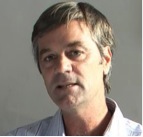
“Let Us Choose What Works For Our Farms” say farmers about the tools and technologies needed to tackle climate change
During the World Food Prize a panel of five farmers, several of whom I know well and admire greatly, discussed how they are responding to the challenges which global climate change will pose to their farms. The Farming First (www.farmingfirst.org) synopsis is below:
The panel was chaired by Julie Borlaug, granddaughter of the late Dr. Norman Borlaug, who said in her opening remarks, “If there was any panel that my grandfather would be most interested to attend, this would be it”. Dr Borlaug was the main catalyst in launching the green revolution in the mid-20th century.
Coming from Africa, South Asia, Latin America and Europe, the five farmer panelists all discussed the ways in which more erratic and extreme weather as a result of climate change is affecting them and the need for new approaches to farming.
 Santiago del Solar, an Argentinian farmer, illustrated this by discussing recent rainfall on his farm over the past decade. “There’s no such thing as average rainfall,” he said, referring to the wide variation he is seeing from year to year. “In 2009, we received only 672 millimetres of rain – a big drought,” he said, “but in 2012, we received 1451 millimetres, a big flood.” In response to this and other challenges, he mitigates this and other impacts by using no till agriculture, crop rotation, GM seeds, crop protection products and precision agriculture. No till practices alone, helped him save 33% in fossil fuel use and reduce soil erosion by 70%.
Santiago del Solar, an Argentinian farmer, illustrated this by discussing recent rainfall on his farm over the past decade. “There’s no such thing as average rainfall,” he said, referring to the wide variation he is seeing from year to year. “In 2009, we received only 672 millimetres of rain – a big drought,” he said, “but in 2012, we received 1451 millimetres, a big flood.” In response to this and other challenges, he mitigates this and other impacts by using no till agriculture, crop rotation, GM seeds, crop protection products and precision agriculture. No till practices alone, helped him save 33% in fossil fuel use and reduce soil erosion by 70%.
 Meanwhile, the expectations being put on farmers by governments are increasing, said Gabriela Cruz, a fourth generation Portuguese farmer. “What does Europe expect of me?” Cruz asked herself in her presentation. “To be a superwoman” she said, “by producing safe food and reducing water and energy consumption while remaining profitable.” With Europe expected to experience even more drought and heatwaves in the future, Cruz has responded by changing her irrigation system (from flooding to centre pivot), practicing Integrated Pest Management (IPM), rotating crops and maintaining biodiverse pastures. However, to reduce her water consumption further, Cruz called on Europe to improve access to better genetics through GM crops, which will enable her to reduce inputs further and better adapt to a drier climate.
Meanwhile, the expectations being put on farmers by governments are increasing, said Gabriela Cruz, a fourth generation Portuguese farmer. “What does Europe expect of me?” Cruz asked herself in her presentation. “To be a superwoman” she said, “by producing safe food and reducing water and energy consumption while remaining profitable.” With Europe expected to experience even more drought and heatwaves in the future, Cruz has responded by changing her irrigation system (from flooding to centre pivot), practicing Integrated Pest Management (IPM), rotating crops and maintaining biodiverse pastures. However, to reduce her water consumption further, Cruz called on Europe to improve access to better genetics through GM crops, which will enable her to reduce inputs further and better adapt to a drier climate.
 Each farmer had his own story to tell and a unique set of responses which worked for their farm. But across the panel, each farmer called for the ability to choose for himself the range of solutions which worked for them and their farms. “Our farmers created history [during the Green Revolution] by transforming India into a self-sustaining agricultural nation, but we still face challenges”, said Indian farmer V.K. Ravichandran. He mentioned shrinking arable land area, depleting water resources, erratic rainfall and lack of young people becoming farmers, among others. “We should look into the possibility of cultivating other types of crops, different than conventional ones, that would fit into the new environment,” he said.
Each farmer had his own story to tell and a unique set of responses which worked for their farm. But across the panel, each farmer called for the ability to choose for himself the range of solutions which worked for them and their farms. “Our farmers created history [during the Green Revolution] by transforming India into a self-sustaining agricultural nation, but we still face challenges”, said Indian farmer V.K. Ravichandran. He mentioned shrinking arable land area, depleting water resources, erratic rainfall and lack of young people becoming farmers, among others. “We should look into the possibility of cultivating other types of crops, different than conventional ones, that would fit into the new environment,” he said.
 Dyborn Chibonga, who heads the National Association of Smallholder Farmers in Malawi (NASFAM), reiterated this view. “Our farmers take farming as a business,” Chibonga said, “but they are still not producing as much as they should from any given area of land” because they are dependent on rainfed agriculture, shorter duration of growing season, more droughts and floods, resurgence of pests, weeds and diseases and lack of access to processing and markets. He also argued for further innovation to be identified and rigorously tested – “new technologies such as genetic modification, cloned livestock or nanotechnology”– while also ensuring “open and transparent decision-making” and “respect[ing] the views of people who take a contrary view”.
Dyborn Chibonga, who heads the National Association of Smallholder Farmers in Malawi (NASFAM), reiterated this view. “Our farmers take farming as a business,” Chibonga said, “but they are still not producing as much as they should from any given area of land” because they are dependent on rainfed agriculture, shorter duration of growing season, more droughts and floods, resurgence of pests, weeds and diseases and lack of access to processing and markets. He also argued for further innovation to be identified and rigorously tested – “new technologies such as genetic modification, cloned livestock or nanotechnology”– while also ensuring “open and transparent decision-making” and “respect[ing] the views of people who take a contrary view”.
 A farmer from nearby Kenya, Gilbert Arap Bor, discussed the state of agriculture in his country: only 20% arable land, a population often food insecure and frequent need for food imports from other countries. He argued that farmers need to use technology to diversify their crops and organize themselves better to adapt collectively to the changing climate. Bor also noted that the Kenyan government had set up a task force to perform a biosafety review of GM crops to be grown and imported in Kenya, based on a review of recent field trials. He is optimistic he will soon have access to the technology.
A farmer from nearby Kenya, Gilbert Arap Bor, discussed the state of agriculture in his country: only 20% arable land, a population often food insecure and frequent need for food imports from other countries. He argued that farmers need to use technology to diversify their crops and organize themselves better to adapt collectively to the changing climate. Bor also noted that the Kenyan government had set up a task force to perform a biosafety review of GM crops to be grown and imported in Kenya, based on a review of recent field trials. He is optimistic he will soon have access to the technology.
During the question period, the Tanzanian Deputy Minister of Agriculture and Food Security observed that the issue of whether African countries allow GM crops is no longer about science but about political will. And he said that European activism was influencing how African policies were being written because of the fear of losing Europe as an export market (only four African countries currently allow the growing of biotech crops).
The farmer panel event was part of a three-day series of panel debates at the World Food Prize, broad centered around the theme “Biotechnology, Sustainability and Climate Volatility”. Other speakers included Tony Blair, former UK Prime Minister, President Grímsson of Iceland and Cardinal Turkson of Ghana who has served as the President of the Roman Catholic Church’s Pontifical Council for Justice and Peace since 2009. The dialogue was held in conjunction with the World Food Prize Laureate Ceremony, where three leading plant biotechnologists were honoured: Dr. Marc Van Montagu, Dr. Mary Dell-Chilton and Dr. Robert Fraley.
Effectively harnessing the tools and technologies needed to advance sustainable and productive agricultural practices is one of the great 21st century challenges, and it will span the scientific spectrum from research, education, extension and enterprise.